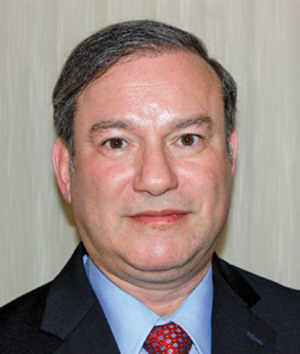
Once again, we read in Parshat Vayishlach how one of our forefathers, Jacob, had his faith put to the test. He was about to face the wrath of his brother, Esav, who was advancing toward him with a small army. The fate of his family and his life was at stake. The verse described that Jacob was “exceedingly frightened” (32:8) to the point where he was “anxious and distressed.” The Gemara (Brachot 4a) wonders how Yaakov could have been so anxious, knowing that God had previously promised to watch him and secure his future. Rashi, the Zohar and the Rambam also question whether being distressed to this degree was a betrayal of faith. The Talmud in Brachot (60a) records a discussion between the sages on whether being fearful and anxious, in general, is acceptable or something to be discouraged.
There are other examples in the Torah of leaders being fearful. When King Saul, for example, was about to face his ultimate last battle with the Philistines, he was described as “afraid with his heart greatly trembling” (1 Samuel 27:5). Still, the description of Yaakov being anxious and distressed seems to have gone a step further. It is natural to be afraid before a battle. However, for a righteous person such as Jacob to be described as anxious and distressed would, at first, seem to be incongruous with his faith in Hashem. Why was his faith being tested similarly to what his father and grandfather had been through?
The Torah goes on to explain that Yaakov did not simply despair. He did not take an anti-anxiety pill and wait passively for the feeling to pass. Instead, he was proactive. He planned for the worst, hoped for the best and prayed to God for assistance. In the end, he prevailed against his brother, Esav, and received blessings from both the angel he struggled with and from God himself. He passed the test. God changed his name and reaffirmed his promises to Israel for the future. (35:9-13)
Still, we are left with the question of why we need to struggle, constantly pass tests and face challenges in our lives. One analogy that might help explain this is as follows: Growing up, we often had to take examinations in school. On the day of the test the teacher would hand out the questions and remain silently up front, proctoring the examination. At that time he would offer no explanations or instructions. On the previous several days, however, he was fully available to teach us, to explain the materials and to prepare us for the examination. On the day of the test, however, he remained silent. Ultimately, we passed these tests and went on to be promoted. We went from first to second grade. We went from elementary school to high school to college or higher yeshiva. Passing these tests led to our promotion and growth.
Similarly, God prepares us for the challenges we face in life. At the time of the test He may appear to be silent or unavailable. However, he is actually up front, watching us like the teacher, making sure that we pass the test and get promoted. Like Yaakov, we may feel tested, but we need not be paralyzed with anxiety. We need to prepare to do what we can, hope for the best and pray to God for help.
May Hashem bless us so that we pass the challenges that life presents, pass our tests and continue to maintain our faith. May we ultimately be promoted with health, success and happiness.
Rabbi Dr. Avi Kuperberg is a forensic, clinical psychologist in private practice. He is president of the Chai Riders Motorcycle Club of NY/NJ. He leads the Summit Avenue Shabbos Gemara shiur and minyan in Fair Lawn, NJ, and is a member of the International Rabbinical Society. He can be reached at [email protected].










